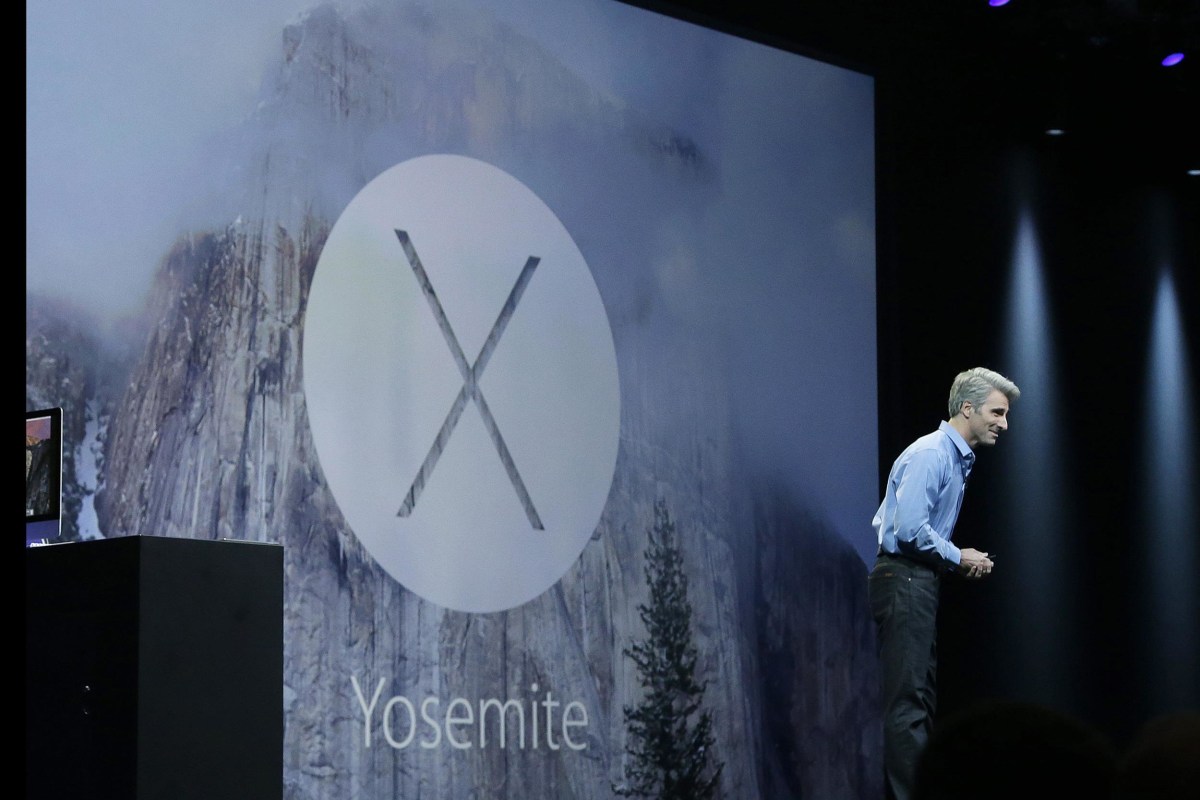Apple's Upcoming Operating System Name Changes

Table of Contents
Rumors and Speculation Surrounding iOS 18 Name Change
The upcoming iOS 18 release is the focal point of much speculation regarding Apple's operating system name changes. Will Apple continue its numerical naming convention, or might we see a dramatic shift?
Potential Name Changes & Their Implications
- Continuation of Numerical Naming (iOS 18, iOS 19, etc.): This maintains consistency, familiar to users, and simplifies developer adaptation. However, it lacks excitement and may not reflect significant underlying changes.
- A Complete Overhaul (e.g., "AppleOS," "iLifeOS"): A radical change could signal a significant leap in functionality or a unification of platforms. However, it risks alienating users accustomed to the familiar iOS branding and requires extensive rebranding efforts.
- A Subtle Shift (e.g., iOS 18 "Zenith," iOS 19 "Apex"): This approach retains the numerical identifier but adds a thematic or descriptive element, creating a sense of evolution without jarring disruption.
The reasoning behind any change likely stems from Apple's marketing strategy. A new name can generate buzz, associate the update with specific features, and potentially appeal to a broader market. However, a significant change impacts user understanding and requires developers to adapt their documentation, marketing materials, and application interfaces. The success of such a change hinges on clear communication from Apple and user acceptance.
Analyzing Past iOS Name Changes as Predictors
Examining past iOS name changes offers valuable clues:
- iOS 1 → iOS 2 → iOS 3 etc.: This demonstrates Apple's initial preference for simple, numerical identifiers, emphasizing iterative improvements rather than revolutionary overhauls.
- No major thematic shifts: Apple has historically avoided using thematic names for its core iOS releases.
These patterns suggest a continued preference for numerical naming, although a subtle thematic addition is not entirely out of the question. However, the current speculation suggests a possibility of more significant changes reflecting the convergence of Apple's platforms and features.
Potential Name Shifts in iPadOS, macOS, watchOS, and tvOS
Beyond iOS, other Apple operating systems could also see name changes, potentially influencing the overall ecosystem.
iPadOS Evolution and Naming Consistency
Should Apple choose to maintain iPadOS as a separate entity from iOS, a name change could signal a stronger emphasis on iPad-specific features and functionalities. Conversely, merging iPadOS with iOS could simplify app development and user experience but potentially dilute the iPad's unique selling points.
- Maintaining Separate Identity: This highlights the unique capabilities of the iPad and its distinct user interface.
- Merging with iOS: This simplifies development but might lead to loss of functionality optimized for the larger screen size.
The decision will significantly impact developers, requiring adjustments to their apps and development strategies.
macOS, watchOS, and tvOS: Maintaining Brand Identity
The likelihood of name changes for macOS, watchOS, and tvOS is lower. These operating systems have established brand identities, and any change could cause confusion or disrupt user expectations. However, slight adjustments to reflect feature alignment with iOS are possible.
- Maintaining established names: This minimizes confusion and maintains brand recognition.
- Minor adjustments: This reflects feature alignment while preserving established brand identity.
The established branding of these operating systems and their distinct user bases make a drastic name change less probable than for iOS.
The Impact of Apple's Operating System Name Changes on Developers
Apple's operating system name changes have significant implications for developers.
Adapting to New Naming Conventions
A name change requires developers to update their documentation, adapt code for compatibility, and revise marketing materials. This involves time, resources, and potential disruption to their development cycles.
- Updating Documentation: All references to the old name must be corrected to reflect the new name.
- Code Adjustments: Some code might need adjustments to ensure compatibility with the new OS version.
- Marketing Material Updates: All marketing materials need to reflect the new OS name.
Staying informed about official Apple announcements is paramount for developers.
The Role of Apple's Developer Documentation
Apple provides comprehensive documentation to assist developers in adapting to new OS versions. This documentation outlines changes, provides code examples, and offers troubleshooting resources.
- Apple Developer Website: The central hub for all developer-related information.
- Release Notes: Detailed information about new features and changes in each OS update.
- API References: Comprehensive documentation for using Apple's APIs.
Leveraging these resources is crucial for developers to make smooth transitions.
Conclusion
Apple's potential operating system name changes represent a significant event for both users and developers. The implications range from marketing strategies to app compatibility. While speculation abounds, understanding the historical patterns and the potential impact on developers is crucial. Staying informed about official announcements and leveraging Apple's developer resources will be key to a smooth transition. Stay updated on all the latest developments concerning Apple's operating system name changes by following our blog and other reputable tech news sources!

Featured Posts
-
 Pogoda V Izraile Preduprezhdenie Mada O Vozmozhnykh Opasnostyakh
May 30, 2025
Pogoda V Izraile Preduprezhdenie Mada O Vozmozhnykh Opasnostyakh
May 30, 2025 -
 Augsburger M Net Firmenlauf Ergebnisse Fotos Und Details
May 30, 2025
Augsburger M Net Firmenlauf Ergebnisse Fotos Und Details
May 30, 2025 -
 Bts V And Jungkooks Military Honed Bodies Gym Photos Spark Fan Frenzy
May 30, 2025
Bts V And Jungkooks Military Honed Bodies Gym Photos Spark Fan Frenzy
May 30, 2025 -
 Death Bath Uncovering The Horrific Methods Of A Serial Killer
May 30, 2025
Death Bath Uncovering The Horrific Methods Of A Serial Killer
May 30, 2025 -
 Bayern Muenih Augsburg Maci Canli Yayin Bilgileri
May 30, 2025
Bayern Muenih Augsburg Maci Canli Yayin Bilgileri
May 30, 2025
